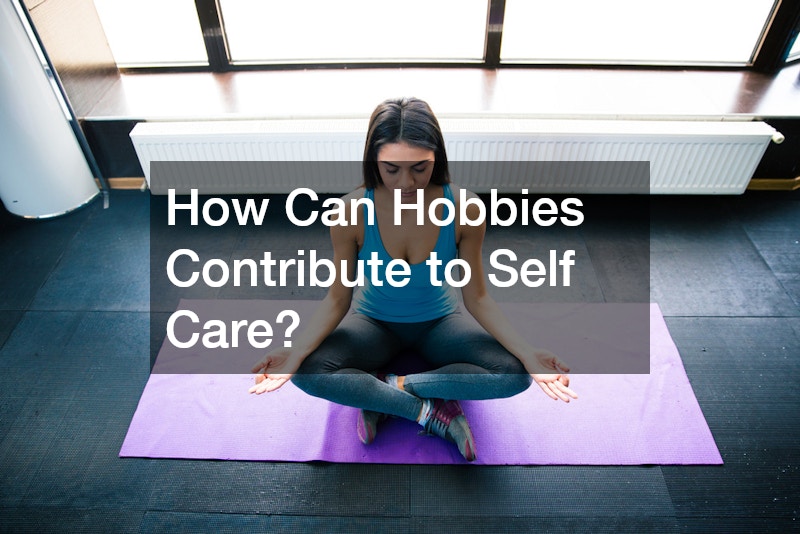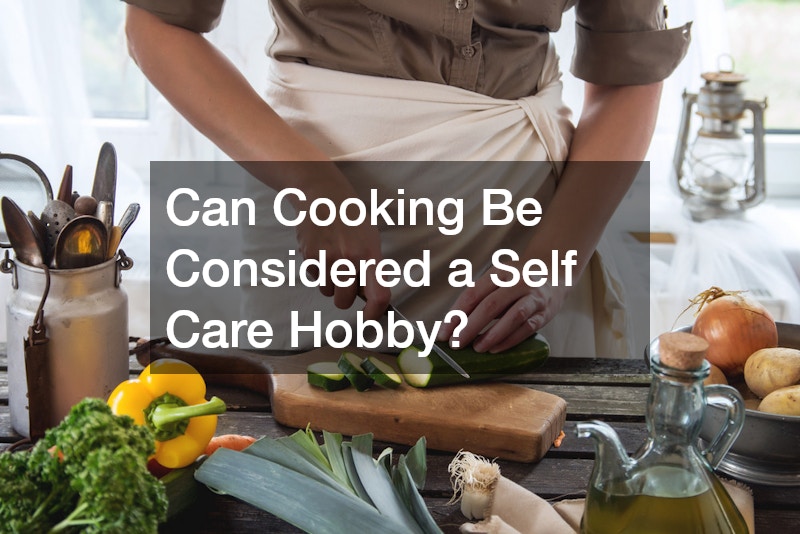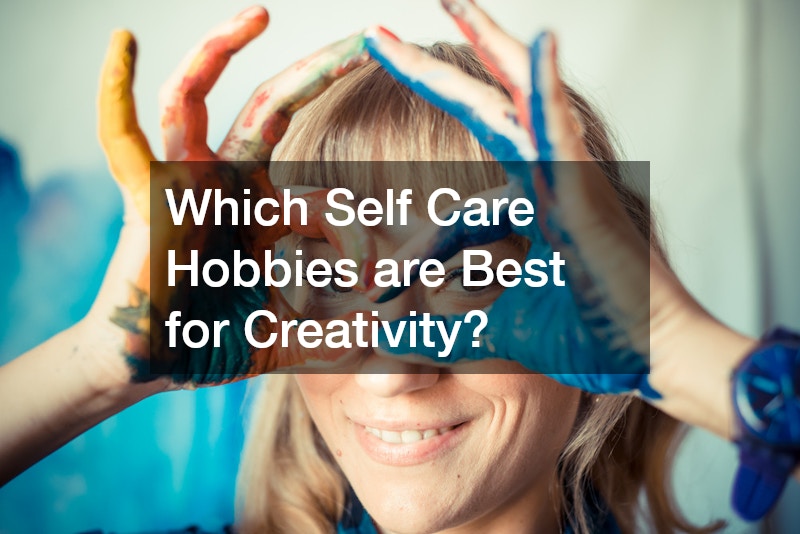In today’s fast-paced world, where stress is often an unwelcome companion, the importance of self care cannot be overstated. More than a trend, self care is an essential practice for maintaining mental clarity, emotional stability, and physical health. Developing self care hobbies offers a rewarding way to nurture your well-being while enriching your life. These hobbies are not just about taking a break; they allow us to reconnect with our inner selves, explore creativity, and reduce the toll that stress can take on our overall health. Engaging in self care hobbies regularly helps build resilience against life’s pressures and encourages us to enjoy the present moment, adding depth and satisfaction to our routines.
Whether you’re drawn to relaxing activities like meditation, creative pursuits such as painting, or physically engaging hobbies like hiking, there’s a self care hobby for everyone. These activities are not only ways to unwind but also powerful tools for mental, physical, and emotional rejuvenation. Through this guide, you’ll explore the answers to common questions about self care hobbies and gain insights on how to integrate these meaningful practices into your daily routine. Start your journey toward a balanced and fulfilling life with hobbies that bring joy, purpose, and lasting wellness.
- What is Self Care and Why is it Important?
- Understanding Self Care
- How Can Hobbies Contribute to Self Care?
- What are Some Relaxing Hobbies?
- How to Incorporate Fitness into a Self-Care Hobby?
- Can Cooking Be Considered a Self Care Hobby?
- Which Hobbies are Best for Creativity?
- How Do You Start a New Self Care Hobby?
- Are There Hobbies Suitable for Everyone?
- How to Balance Hobbies with Daily Responsibilities?
- What are the Long-term Benefits of Self Care?
What is Self Care and Why is it Important?
Understanding Self Care
Self care is about taking deliberate steps to nurture your physical, mental, and emotional well-being. It involves recognizing your needs and taking action to address them. Self care often includes practices like setting aside time for activities that promote relaxation and well-being, such as reading, journaling, or even visiting a spa.
The Benefits of Self Care
When we prioritize self care, we experience improved mental health, greater resilience against stress, and increased productivity. By making time for self care hobbies, we create a balanced life that supports both our personal and professional well-being.
Self Care vs. Self Indulgence
While self care focuses on sustainable habits that nurture long-term well-being, self-indulgence may involve short-lived activities that provide immediate gratification. Visiting a spa regularly, for example, can be an excellent self care hobby, offering both relaxation and rejuvenation for the body and mind.
Common Myths about Self Care
A prevalent myth about self care is that it’s selfish. In reality, self care allows us to recharge, so we can better support others. Another misconception is that self care is time-consuming, but even brief self care hobbies, like a short walk or a quick creative session, can yield significant benefits.
How Self Care Hobbies Fit into the Equation
Self care hobbies provide a structure for wellness that’s enjoyable and sustainable. From gardening to creative writing, self care hobbies offer avenues to relax, recharge, and rediscover passions that foster growth and happiness.
How Can Hobbies Contribute to Self Care?

The Role of Hobbies in Mental Health
Hobbies offer an opportunity to disconnect from stress and refocus on pleasurable activities. They serve as a form of therapy, providing an outlet for expression and a means to address mental health challenges through constructive distraction.
Stress Reduction through Creative Outlets
Hobbies like painting, sewing, or shopping for second hand clothing can reduce stress by allowing us to focus on something enjoyable and fulfilling. Activities like upcycling second-hand clothing into new creations or decorating home spaces can bring joy, satisfaction, and an enhanced sense of accomplishment.
Building Routine and Structure
Incorporating self care hobbies into our daily routines provides much-needed structure. For example, decluttering through a dumpster rental can help clear space physically, creating a calm environment that reflects inner clarity. These routines enhance stability and make time for mindfulness in our busy lives.
Enhancing Personal Growth
Self care hobbies are also tools for personal growth. Learning new skills, overcoming challenges, and pushing creative boundaries contribute to self-confidence and personal development.
Community and Social Connection through Hobbies
Hobbies are a fantastic way to connect with others. Whether it’s a book club, an art class, or even an online group for fitness enthusiasts, shared self care hobbies foster community, support, and the feeling of belonging.
What are Some Relaxing Hobbies?
Meditation and Mindfulness Practices
Meditation provides a peaceful escape, offering time to center ourselves and find clarity. Regular mindfulness practice can improve focus and reduce anxiety.
Gardening and Nature Activities
Gardening can be a deeply therapeutic hobby, promoting patience, nurturing, and connection to nature. Being outdoors also boosts vitamin D and provides a mental reset from the daily hustle.
Art and Crafting
Painting, drawing, or making crafts are self care hobbies that foster creativity while reducing stress. They offer a tangible way to express oneself and create something unique and meaningful.
Reading and Literature
Reading allows us to unwind, learn, and travel through words. Curling up on a comfortable sofa with a good book not only improves our knowledge but also provides a much-needed mental break.
Music and Playing Instruments
Listening to music or learning to play an instrument can be a therapeutic outlet. Music has been shown to positively affect mood and even improve cognitive function, making it a fantastic self care hobby.
How to Incorporate Fitness into a Self-Care Hobby?
Yoga and Body Care
Yoga combines mindfulness, stretching, and strength-building, making it a holistic self care hobby. Regular practice can alleviate stress, improve flexibility, and provide a calm way to start or end the day. Some even consider trips to the chiropractor as a form of self care. Any small hobby that may improve your life and the way you feel counts.
Hiking and Outdoor Adventures
Hiking is an excellent way to connect with nature, enjoy fresh air, and get physical exercise. Plus, the mental health benefits of spending time outdoors are well-documented.
Dance and Movement
Dancing is a fun, dynamic self care hobby that combines movement with self-expression. Beyond being a great workout, it promotes body positivity and joyful energy.
Swimming for Relaxation and Fitness
Swimming is a low-impact activity that promotes cardiovascular health, strength, and relaxation. It’s an ideal self care hobby for those who enjoy water and need gentle exercise.
Martial Arts for Discipline and Exercise
Martial arts not only improve physical fitness but also foster discipline and mental resilience, making it a powerful self care practice that builds confidence and strength.
Can Cooking Be Considered a Self Care Hobby?

Exploring New Recipes
Cooking is both creative and therapeutic, allowing us to explore flavors and cuisines. Trying new recipes can be an exciting culinary adventure that promotes mindfulness and creativity.
Mindful Cooking Practices
Cooking mindfully encourages us to slow down and appreciate each ingredient. This self care hobby not only nurtures our bodies but also serves as a meditative practice.
Nutrition and Self Care
Choosing to cook healthy, nutritious meals is an act of self-care that supports long-term well-being. Cooking at home allows for healthier options and mindful ingredient choices.
Baking as a Therapeutic Activity
Baking, like cooking, is a form of self-expression and creativity. Kneading dough or decorating cakes offers a calming routine that can be surprisingly therapeutic.
Hosting and Sharing Meals with Loved Ones
Hosting meals for friends and family can be a rewarding way to connect. Sharing a homemade pizza, for example, brings people together and adds a joyful social element to self care.
Which Hobbies are Best for Creativity?

Painting and Drawing
Painting and drawing are excellent for expressing emotions and developing creativity. They offer a form of visual storytelling and provide a satisfying way to create.
Creative Writing and Journaling
Writing is a powerful self care hobby that allows us to explore thoughts, emotions, and ideas. Writing near a cozy fireplace can make journaling even more relaxing, creating a serene ambiance for reflection.
DIY and Craft Projects
DIY projects encourage problem-solving and creativity, from small home decor projects to intricate craft items. These activities add a personal touch to your space.
Photography and Film
Photography captures memories and beauty, making it a mindful hobby that encourages us to see the world in new ways. It can be as simple as taking photos on a walk.
Sewing and Textile Crafting
Sewing, knitting, or crocheting provide both mental focus and creative expression. They also give a sense of accomplishment with each completed project.
How Do You Start a New Self Care Hobby?
Assessing Your Interests and Passions
Choosing a hobby begins with reflecting on your interests. Whether it’s craft beer tasting, gardening, or photography, the right hobby will spark enthusiasm and offer a joyful challenge.
Setting Realistic Goals and Expectations
When starting a new self care hobby, set manageable goals. Small milestones can keep you motivated and prevent frustration.
Finding Resources and Communities
Look for resources, such as local classes or online groups, where you can find guidance and support from like-minded hobbyists.
Overcoming Initial Challenges
Challenges are a natural part of learning. Persevering through initial hurdles fosters growth and brings greater satisfaction once skills improve.
Sustaining Long-term Interest in Your Hobby
Keep your hobby interesting by exploring new aspects or learning advanced techniques. Switching up routines can also keep things fresh and enjoyable.
Are There Hobbies Suitable for Everyone?
Identifying Universally Accessible Hobbies
Many self care hobbies are accessible to people of all ages and abilities, such as reading, painting, and gardening.
Adapting Hobbies for Different Abilities
There are adaptations available for most hobbies, allowing individuals with varying abilities to participate. For instance, gardening can be adapted to smaller spaces.
Budget-Friendly Hobby Options
Self care hobbies don’t have to be costly. Activities like drawing, journaling, or taking walks offer relaxation and fulfillment without a significant expense.
Family and Group-Oriented Hobbies
Hobbies can also be shared with family members. Activities like baking, board games, and picnics promote family bonding.
Indoor vs. Outdoor Hobbies
Whether indoors by a hot tub or outdoors, self care hobbies are versatile enough to suit your preference, creating options that fit any lifestyle.
How to Balance Hobbies with Daily Responsibilities?
Time Management Tips
Setting aside specific time slots for your hobbies ensures they don’t interfere with daily obligations. Even 15 minutes a day can yield benefits.
Prioritizing Self-Care in a Busy Schedule
Emphasize your need for self care without feeling guilty. Small habits that focus on personal well-being add balance to life’s demands.
Integrating Hobbies with Family Life
Incorporate hobbies into family activities, like reading together, to foster connection and share time in a productive way.
Creating a Flexible Hobby Routine
Flexibility prevents burnout and accommodates shifts in your schedule. Adjust your time as needed without feeling pressured.
Recognizing and Overcoming Burnout
If your hobbies feel overwhelming, it may be time to pause. Return to them when you’re ready, refreshed, and eager to engage again.
What are the Long-term Benefits of Self Care?

Enhancing Emotional Well-being
Hobbies allow us to manage stress, express emotions, and build resilience. They become reliable sources of calm and joy.
Cultivating a Positive Mindset
Self care hobbies promote a balanced outlook on life. Engaging in regular activities that bring joy fosters optimism.
Improving Physical Health
Many hobbies encourage physical activity, which benefits cardiovascular health, improves stamina, and enhances strength.
Strengthening Social Bonds
Group hobbies help establish and maintain connections with others, nurturing social well-being and a sense of community.
Lifelong Learning and Personal Development
Hobbies encourage continuous learning, helping you to grow, explore, and find fulfillment at every life stage.
Incorporating self care hobbies into your life can have a profound impact on well-being, creativity, and social connections. By dedicating time to activities that bring you joy and relaxation, you’re investing in a balanced, healthier lifestyle. Whether through peaceful pursuits like gardening, expressive outlets like painting, or invigorating activities like yoga, self care hobbies are transformative. They provide stress relief, bolster mental clarity, and support emotional resilience, allowing you to face daily challenges with renewed energy and a positive mindset.
Additionally, these hobbies offer social opportunities that strengthen bonds with family and friends. A cooking night or an outdoor adventure, for example, can build deeper connections and create cherished memories. When you prioritize self care hobbies, you’re nurturing yourself in ways that foster long-term happiness, adaptability, and personal fulfillment. Choose the hobbies that resonate with you and start experiencing their numerous benefits today — because taking time for self care is a gift that keeps giving, enriching your life at every level.

